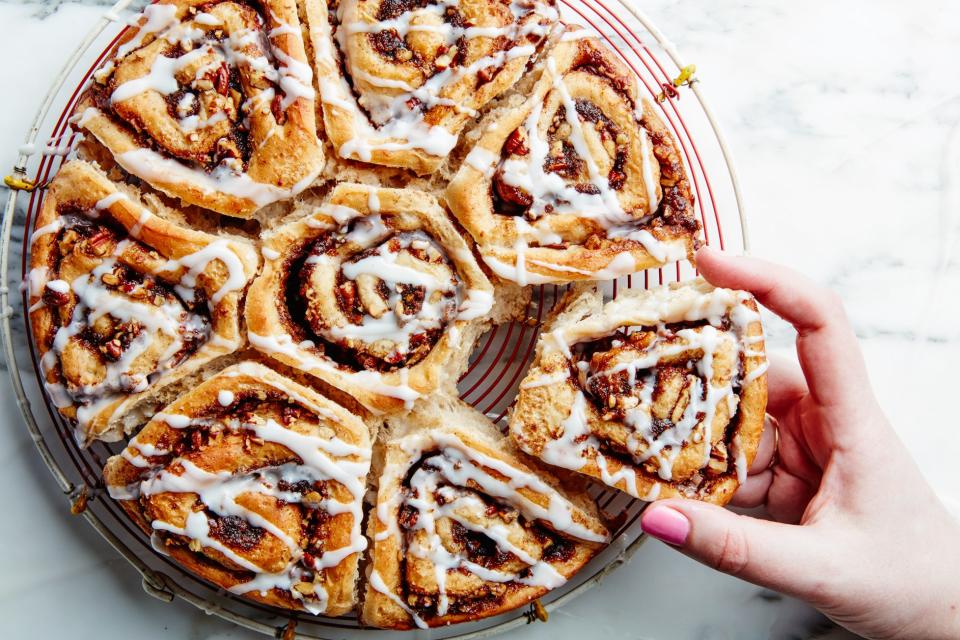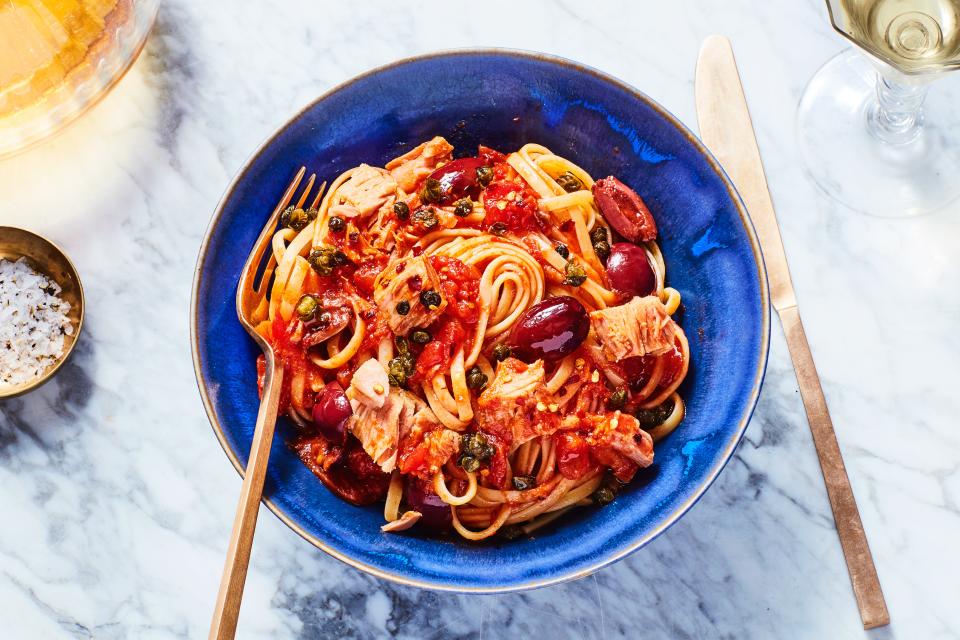Will Cooking Really Help Us Feel Less Stressed?
From the beginning, I’ve known what I was supposed to do. I was supposed to run to the stove. Faced with an endless stream of news about politics and pathogens, I was supposed to roast a chicken, make a soup, bake two loaves of banana bread. To feel better. To “nourish” myself.
Sure. But then why did I spend the past week doing everything I could to avoid my kitchen?
I want to say I did it to avoid becoming a cliché, but that’s not really it. The truth is I’d begun to doubt that the kitchen had anything to offer me. I have written (and written, and written) about cooking as something that’s beneficial to mental health and general well-being; I have been outspoken about the ways that I use it as a tool to quell the side effects of my OCD. But I have never cooked during a pandemic, and I doubted I would feel nourished when I did.
You can’t just drift off and mince parsley (if you want to keep your fingers).
So I stayed away from the stove. I let my boyfriend do the cooking. If he wasn’t around, I made scrambled eggs and toast. And when I felt that shift earlier this week—that is, when I started feeling that things on this planet were definitely getting worse, not better—and that cooking-as-stress-relief is probably something Epicurious should be writing about, I had to call a friend to remind myself how it’s done.
“The act of concentration and focus is really important,” Jamila Robinson told me. Robinson is the food editor at the Philadelphia Inquirer and no stranger to emotional cooking. She swore to me that cooking had not lost its de-stressing powers. “It’s an act of mindfulness,” she said. “You have to breathe through it. You have to take care. You can’t just drift off and mince parsley, if you want to keep your fingers.”
She’s right, she’s right, I know she’s right—and yet I could not bring myself to believe her. So when I saw another friend, food writer and cookbook author Elazar Sontag, talking about “anxiety cooking” on Instagram, I called him.
“I’ve been going through waves,” he told me.

OUR FAVORITE CINNAMON ROLLS HERO
The first wave was pancakes. “Two weeks ago I ate pancakes four nights in a row. Not even buttermilk! I felt so sick.”
Now he’s moved on to smashburgers. “I’m generally trying to stay away from eating a lot of meat, but all I wanted to do this week was just smash the fuck out of some beef. I don’t think I’m going to do it tonight because I don’t think my body can handle another night of burgers.”
Now this resonated. Food as frustration release, food as a punching bag. I still didn’t feel like cooking, but I went out that night and—how do frat boys say this?—smashed a basket of fried artichokes, threw down too many glasses of wine, ate too many slices of cake.
I woke up hungover from either the wine or the sugar, and my stress levels had only risen.
On Instagram that night (surely all the time I’ve spent on Instagram isn’t contributing to my stress, right?) I saw my co-worker Christina Chaey talking about stress-cooking pots of soup and beans. She buried herself in piles of carrots and onions, and stayed up after midnight until both meals were complete. I reached out to her the next day: Did it work? Like really? When the soup was ready and the kitchen was clean, did you actually feel better?
“I felt exhausted,” she said. “Which is good. I felt better in the morning.”
I wanted to feel better. I wanted to turn off all the noise that stress and anxiety makes in my brain so that I could focus on the facts: that I’m lucky and privileged to be able to work at home, to have health insurance, to not have any sick family members, to have the time and space and money to cook. So I gave in. I opened a cookbook (Lukas Volger’s Start Simple), found a recipe for a cabbage-lentil-feta salad I had never cooked, and went to the grocery store. I expected to find panic and empty shelves, because just earlier that day somebody had warned me to get everything I need now, but there was plenty of food and no chaos. I bought what I needed, threw a few things in my cart for my emergency stash, and went home.

Pantry Pasta Puttanesca
The salad was simple, but it had a few steps. I had to sizzle onions in olive oil for 20 minutes. I had to salt cabbage, let it sit, and then squeeze it dry with my hands. I had to chop nuts and pick parsley leaves from their stems. I didn’t think any of this would stop my mind from racing, but of course, you know how this story ends: the frantic thoughts stopped. Those onions that took twenty minutes? I had to stand over them, push them around the pan, watch them closely so that they did not burn. And by the time they were done, I could feel the effect of the cooking in my body: relaxed shoulders, deeper breaths, a noticeable uptick in endorphins.
For two hours I felt better than I had in ten days, but then I looked at the news and some of the stress came back. Sontag had warned me it would be like that. “Inevitably you check Twitter and something has fallen apart and you snap back into things,” he’d told me. But now, finally, I had been reminded of a way out.
77 Comfort Foods for Stressful Times
Originally Appeared on Epicurious

